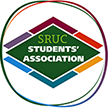What is disability?
In August 1983, I was almost five years old, and I started school, but unlike my classmates I could not write my own name. I could not write it due to a learning disability called dyspraxia. This meant coordinating the pencil was impossible for me. Even all these years later, although I have learnt to write and can use a pencil/pen, my handwriting is known for being tiny and most people struggle to read it. I am like one in five people that has a disability, and incredibly, 80% of these are hidden disabilities. In this blog I will explain a bit more on hidden disabilities, how they can impact on studying, and how we can raise awareness of them.
What is a hidden disability?
Let’s begin however by understanding what a disability is. To be considered to have a disability, that person has difficulty performing certain functions from seeing to hearing, talking and walking, may have difficulty with the activities of daily life or social occasions.
One of the key things about hidden disabilities is that you cannot ‘see’ the disability. There are no visual prompts like wheelchairs, sign language or walking sticks. Which may classically be seen as the sign of disability. These disabilities are permanent and may or may not medication to manage them (e.g., diabetes, asthma, epilepsy, or mental health conditions). They can be learning disability (e.g., dyslexia, dysgraphia, dyspraxia, or dyscalculia). There are others such as autism, ADHD, and FASD that are misunderstood through lack of understanding and/or assumptions.
Living with a hidden disability
Living with a hidden disability can make life even more demanding than it already is. This can be highly individual, but can be painful, exhausting and/or isolating. Due to the lack of visual clues or visible evidence, people can be unsympathetic. As they do not understand the challenges that getting through a day can bring.
Studying with a hidden disability can be difficult, as not everyone with one may know they do or may not regard themselves as disabled. I know, when I was younger, I was guilty of the latter. Knowing what support is needed, or how to express the needs as cannot articulate it can also be an issue. There can equally be a feeling of being misunderstood by staff or fellow students, ignored, or even invalidated. Although some may suspect something is wrong, but not sure what it is or how to ask for help.
Studying with a disability
One of my lecturers at SRUC actively asked me questions around their assessments and my disabilities. Which completely took me aback. I was grateful they actively wanted to know more. Including, how they could best adjust the assessment beyond the set extra time I was allocated. These were four time limited tests. Two of these were on the same day as another two-timed tests for a different lecturer. I knew I would be exhausted from the focus required for one set, let alone two. Although done a computer and not handwritten I would still have pain in my right hand, and have a migraine that make any kind of focusing impossible.
With student and staff having these kinds of conversations we can improve things for all at SRUC. By raising awareness, it ensures people are treated properly, nipping problems in the bud, and avoiding unnecessary extra stress. Throughout this year I will be using SRUCSA’s social media to improve this awareness too. If you have got a disability, please remember you can approach me or one of the members of student support. We won’t ever judge, and will actively listen to you to get you the support you need to ensure you have a success when studying at SRUC.









